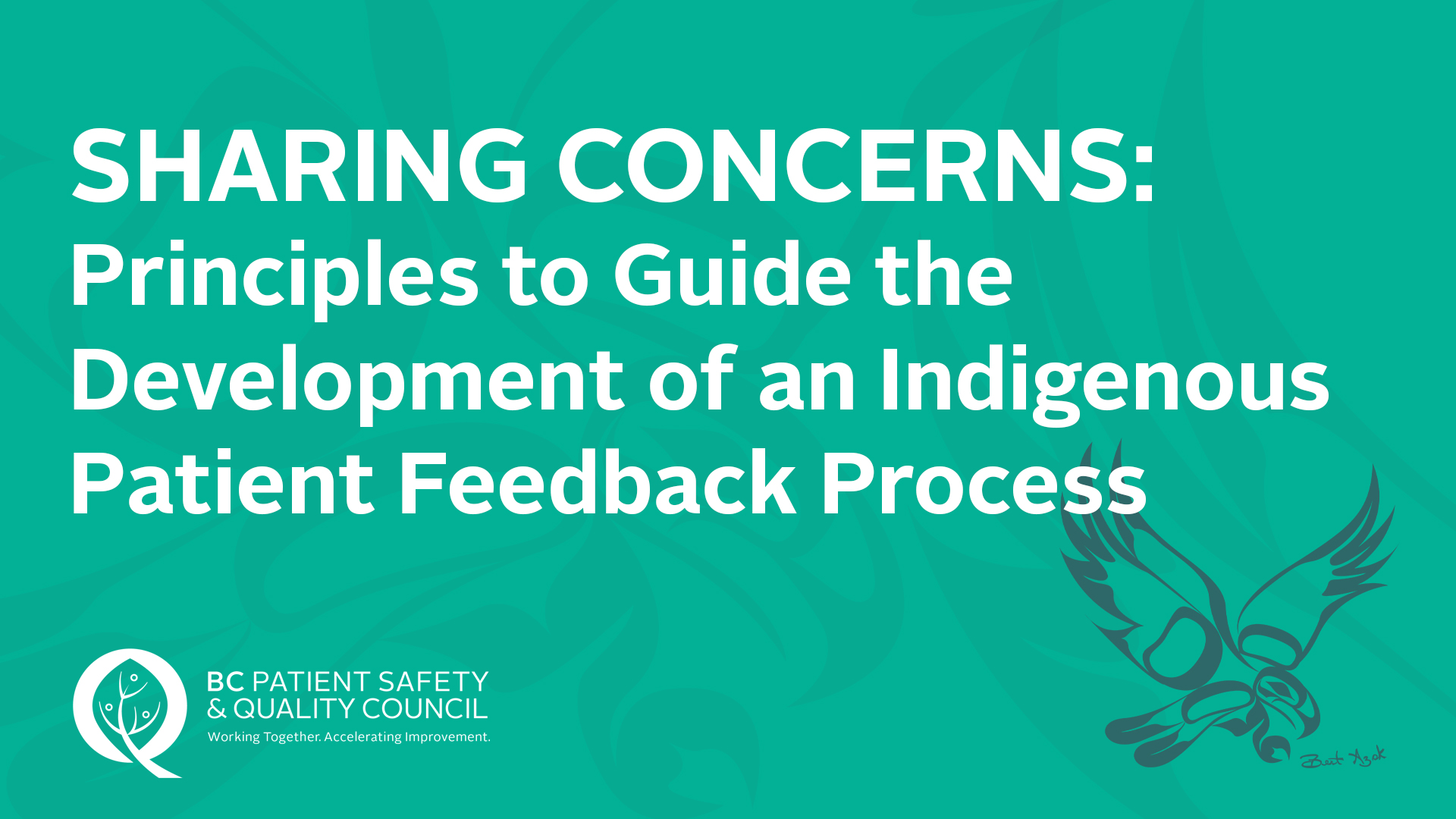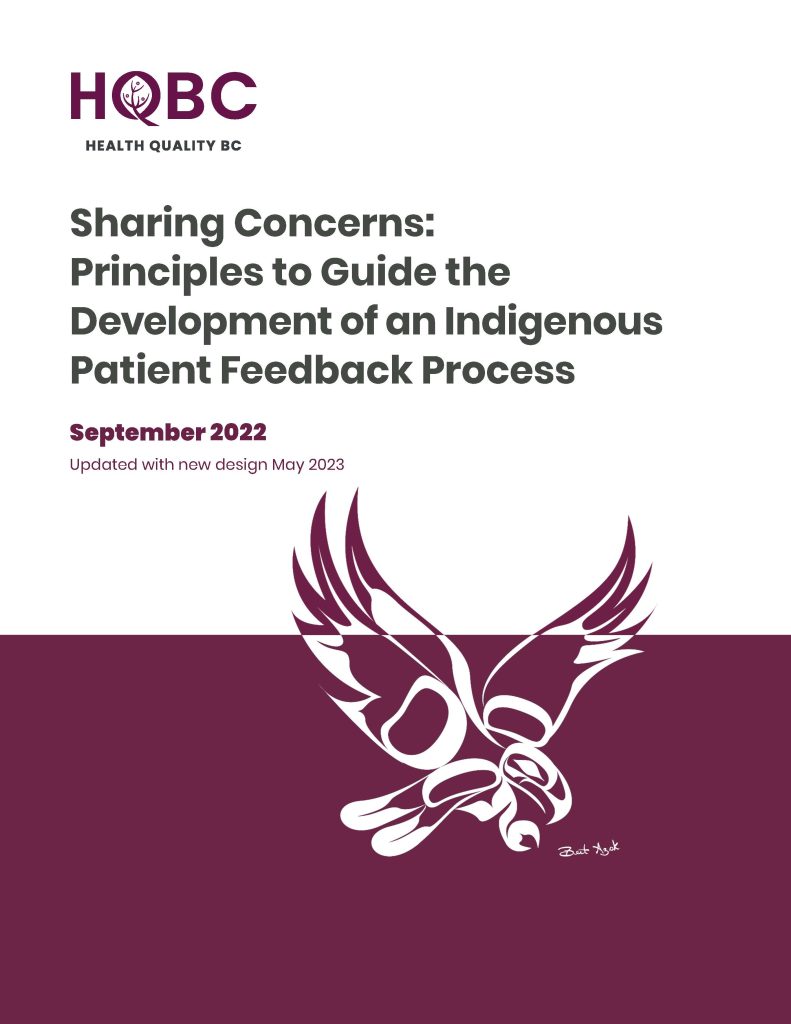Evidence of widespread and systemic racism against Indigenous peoples, resulting in a range of negative impacts, harm, and even death, was highlighted in the In Plain Sight: Addressing Indigenous-Specific Racism and Discrimination in BC Health Care report, released in November 2020. Twenty-four recommendations were made to address the systems, behaviours and beliefs contributing to Indigenous-specific racism in the province.
Recommendation 5 from the report calls on the health system to create an integrated, accessible and culturally appropriate complaints process for Indigenous peoples in BC. In support of this recommendation, we hosted a provincial dialogue that brought together more than 100 people from health care organizations, Indigenous patients, families and caregivers to discuss how the process to share concerns about a health care experience can be improved for Indigenous peoples.
“This was a good process for relationship building, connecting and providing space for all participants voices to be heard.” (Provincial Dialogue Participant)
Patient Journey Mapping
To help inform the provincial dialogue, we worked with Indigenous patient partners to explore their experiences of sharing a care concern with the health system. They shared their stories and visually mapped their journeys through the system, highlighting touchpoints, thoughts, feelings and ideas on what an improved feedback process looks like. Sharing the patient journey was vital to the discussion during the provincial dialogue to highlight gaps and opportunities from an Indigenous patient and family perspective.
Developing the Principles
Through small and large group discussions, participants at the provincial dialogue generated a list of principles that are important to ensure a culturally safe, accessible and meaningful Indigenous patient feedback process. These core principles and themes from the discussions were validated through participant feedback after the provincial dialogue.
“The Indigenous patient partners not only provided important feedback into our discussion, their insistence on having their experience be the guiding force to change through a relational lens, rather than a ‘complaint’ frame was an important foundation for our further conversations. It was an “aha moment” that shifted our conversations for the better, and was critical to really getting to the real forces that are impeding progress” (Provincial Dialogue Participant)
We also conducted an environmental scan to highlight actions within organizations across BC to improve the patient feedback process for Indigenous peoples. The scan provides an overview of policies and guidelines related to this work and supports collaboration amongst BC’s health care organizations. The information in the environmental scan is current to May 2022.
The Principles
These principles are intended to lay the foundation for what it means to provide a safe, accessible and meaningful process for Indigenous patients and families to share their experiences within BC’s health system. The principles are not prescriptive, but rather provide a common understanding for health care organizations across the province. Organizations can determine how the principles are used in a way that honours the local context and experiences of the Indigenous patients and families they serve.
This new resource highlights the importance of each principle and provides examples of how they can be put into action to improve patient feedback processes.
A culturally safe and appropriate health care feedback process learns from Indigenous experiences, responds to their needs and supports meaningful resolution in an effort to create a safe health care system free from racism and discrimination.
Identified Core Principles
• Be Grounded in Indigenous Rights, Cultural Values and Traditional Protocols
• Be Indigenous Patient- and Family-Centred
• Take a Restorative and Accountable Approach
• Remove Unnecessary Barriers to Engaging in the Patient Feedback Process
• Be Trauma- and Violence-Informed
• Include Indigenous Peoples in Leadership and Positions Supporting the Patient Feedback Process
• Be Responsive and Provide Clear, Timely Feedback
• Provide Indigenous Patients and Families with an Indigenous Support Person
• Provide an Opportunity for Indigenous Patients to Identify Their Indigenous/ Aboriginal Ancestry
The Principles Guide
The full document describes the nine core principles in more detail, including the importance of each and how they can be actioned.



